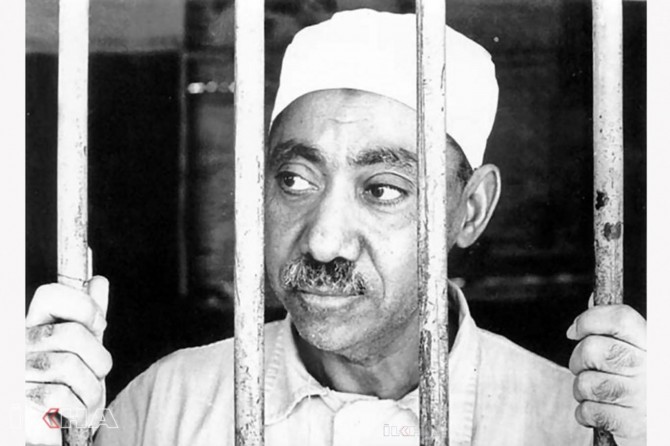
Shaheed Sayyid Qutb on the anniversary of his martyrdom
It has been 53 years since the execution of Sayyid Qutb, an Egyptian scholar; one of the rare personalities grew up in the Islamic sense, fought for his faith and was subjected to various torments.
Today is the 53rd anniversary of the martyrdom of Sayyid Qutb, executed by the president of time Jamal Abdel Nasser.
Sayyid Qutb criticized the moral corruption in Egypt and especially the Westernization themes in the administration and fought for the Islamic understanding to be restored to regain in Egypt.
Known as one of the most important thinkers of the 20th century, Qutb is one of the rare leading figures who stood up against all sorts of hardships and difficulties for the sake of his cause, even though he is not afraid to sacrifice his life.
Qutb is an Islamic scholar, considered one of the rare personalities of Arabic literature, from the important thinkers and editors of Egypt in the second quarter of the 20th century.
The author of Fi Zilal Al-Qur'an [In the Shade of the Qur'an], which enlighten most of the Islamic world and Islamic movements, Sayyid Qutb Ibrahim Husayn Shadhili was born on 9 October 1906. He was raised in the Egyptian village of Musha, located in Upper Egypt's Asyut Province. He had memorized the whole Qur'an before he was 10-year-old.
At the beginning of the teachers who taught Sayyid Qutb, was Mehdi Allame. "It is a great pleasure for me to teach Sayyid Qutb," says Mehdi Allame when he was asked about Qutb.
Qutb, whose name is the most pronounced and criticized in the last century, is not limited to geographical and ideological movements whose thought is merely comparable but has influenced many Islamic movements in the Islamic world.
After completing secondary and high school education in al-Azhar, he then attended Dar al Ulum Faculty at Cairo University. Qutb was appointed as a faculty member in the same year, where he graduated in 1933.
In 1939 and afterward, he headed to the Islamic thought. In his article titled "Location Courses" written in 1946, Qutb argued that the reform of the community and the Muslims' work in this direction is the Qur'an's command. Qutb criticized social corruption and moral corruption in Egypt. According to the majority, this article represents his entrance to Islamic thought.
Qutb, who went to the USA in 1949, lived there for about 3 years. During this period, he criticized the United States' lifestyle and society; the racism witnessed by society and rejected American civilization, which he described as primitive. In the same year, he published his work titled "Social Justice in Islam" when he was abroad.
In his letters to his friends during his stay in the US, he was constantly criticizing this [US] society. In his letters, the theme of "There is nothing spiritual in American civilization," was always on the front.
In his works, Qutb defended the true Islamic line against the Islamic concept, which is generally full of superstition. When Qutb returned to Egypt, he left the public service and joined the Organization of the Muslim Brotherhood.
Another important step in Qutb's life was the process between 1951 and 1965. Martyr Qutb completely stripped of the literature in this period and participated in the organization of the Muslim Brotherhood.
Qutb, who becomes an important thinker of this organization, constantly raises the consciousness of the Egyptian people who are inclined to westernization by trying to convey his thoughts on the organization's media organs.
Martyrdom
On November 7, 1954, when the Muslim Brotherhood was accused of attempting to assassinate Jamal Abdel Nasser, Qutb was also in the ranks of this organization.
After this accusation, many members of the Muslim Brotherhood were arrested including Sayyid Qutb, the result of the trial, he was given 15 years imprisonment, which conditions were bad and Qutb was tortured.
ILKHA










Türkçe karakter kullanılmayan ve büyük harflerle yazılmış yorumlar onaylanmamaktadır.